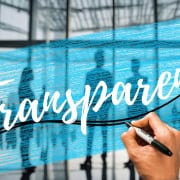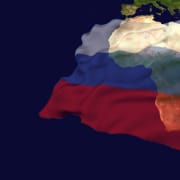|
Getting your Trinity Audio player ready...
|
Beneficial ownership is back in the news at the moment. Opacity in knowledge of the real person behind a company, trust, or corporation, and who will ultimately benefit from its activities – the beneficial owner – is crucial to combating money laundering, tax abuse, and corruption.
Illicit financial flows (IFFs) cost money, resources, and lives. In Africa alone, IFFs cost Africa $30-billion to $40-billion per year. In these times of the Covid-19 pandemic, IFFs have eroded African countries’ tax bases and limited their abilities to respond effectively to emergency needs.
Tax evasion and avoidance by multinationals and the super-rich are a central ingredient of illicit financial flows. The huge sums of money siphoned out of countries in this way erodes their ability to raise revenue. But by failing to collect the revenue that is being lost through tax avoidance schemes by multinationals, governments fail in their obligation to mobilise all available resources towards the realisation of human rights – they thereby condemn millions of people across the developing world to poverty, lack of opportunity and lower living standards.
The UN High-Level Panel on International Financial Accountability, Transparency and Integrity for Achieving the 2030 Agenda Financing for Sustainable Development (Facti) was launched earlier this year. Facti aims to improve the world’s chances of achieving sustainable development by making recommendations that both strengthen current efforts to combat illicit financial flows, and close remaining gaps in the international system.
In September the panel issued its preliminary report on the measures it envisions to reform tax and anti-corruption laws, asset recovery rules, beneficial ownership disclosure requirements, and other international norms – all with a view to blocking the outflow of illicit funds from developing nations and swiftly recovering corrupt funds held abroad.
In these efforts, one of the panel’s critical focus areas is to ensure that corrupt businesspeople or officials cannot use a corporation, trust, or other legally created entity to hide the evidence of their crimes. Investigators must be able to identify the beneficial owner. This is vital to stopping the looting of the resources of developing nations.
Andres Knobel, a researcher with the Tax Justice Network, has written an informative background paper as a support to Facti’s discussions and deliberations. He explains the sinister use of such legal entities as a shield for illegality, and the measures that must be taken to expose this criminal activity.
Read his summary, as published on the Global Anti-Corruption Blog. below, or read the full report.
Beneficial ownership: more than transparency, it’s about justice
The Panama Papers revealed the involvement of many public figures in offshore legal vehicles causing turmoil all over the world. But the real scandal wasn’t the data that was revealed. Rather, the scandal was the fact that we needed a leak to obtain data that should have been available in the first place.
Legal persons such as companies, also referred to as juristic persons, are considered a “legal fiction”. They do not exist in nature. Their most “physical” feature may be the paper containing the company statute or the trust deed that describes and determines the creation and object of the legal vehicle.
Legal persons are called “persons” because they are treated by the law as if they were natural persons: they may use the courts, own assets, enter contracts, etc. Nevertheless, legal persons are not really natural persons. They do not need to eat or breathe. They may own a mansion in Paris, a penthouse in Manhattan, a yacht in the Greek islands or a private jet. But it isn’t the paper containing the trust deed or the company statute who sleeps in the mansion, enjoys the view to Central Park or flies the jet to a party in Dubai. That is done and enjoyed by the natural persons who either own, control or benefit from those legal persons. But if natural persons will ultimately use and benefit the corporate assets, why use legal vehicles in the first place?
Ronald Coase explained in “The Nature of the Firm” that organising as a firm (and hiring people) is more efficient for an entrepreneur than acting as an individual and signing multiple contracts with everyone, because each contract entails transaction costs. Of course, that applies if the legal vehicle will actually do something. Legal vehicles, however, may be used as passive holdings of real estate or financial assets, without needing to sign any contract. They may also be used to commit financial crimes. In these cases, the abuse of legal vehicles by natural persons is explained by the fact that natural persons may choose to hide behind the legal vehicle in bad times (when taxes or debts are owed or when a crime has been committed), but not in good times: when it comes to enjoying the corporate profits and assets.
Yet society was even more generous with legal vehicles. Based on the assumption that legal vehicles are necessary to create jobs and economic growth, or to protect vulnerable people, society even granted many of them limited liability. This means that investors and entrepreneurs could engage in risky business. If things went well, they would reap the benefits with the sky as the limit. If things went bad, their losses would be capped. No personal wealth would be touched, only the legal vehicle’s capital. The same applied to the use of trusts, which allow money to be isolated from the economy, to serve a specific purpose, such as to care for vulnerable people.
Unfortunately, when writing the laws society forgot to require that this original public benefit goal should be present. Instead, legal personality, limited liability and asset protection is usually achieved by merely incorporating or creating a legal vehicle. There is no check or enforcement on whether a job, service or product will be created or whether a vulnerable person will be benefited. As an example, here is an extract from a Harvard Law Review paper on trusts:
Trusts can also pass use and enjoyment of wealth on to beneficiaries while shielding the wealth from the beneficiaries’ creditors and from judgments in divorce. “If you don’t own it,” the saying goes, “nobody can take it away from you.” All of these benefits can be coupled with essentially complete control allocated according to the grantor’s wishes. (…) This makes the total package effectively indistinguishable from property owned outright in terms of the benefits provided, but without important downsides property ownership entails, such as greater exposure to taxes, creditors, and vengeful ex-spouses.
In very abusive cases, courts may intervene and “pierce the corporate veil” or declare the trust a sham, but it will take a lot of time, effort and money, without any guarantee of success.
So, what does society ask in return? To know who the owners of legal vehicles are. It isn’t very clear if declaring ownership is the price to enjoy legal personality and limited liability, or rather a way for the State to protect private property. Otherwise (if no ownership is declared), how would law enforcement know who an asset or legal vehicle belongs to?
Yet “ownership” has its own fiction called “legal ownership”. It goes like this. You want to know the legal owner? I’ll tell you who the owner is: another company. And who owns that other company? Yet another company. And so on.
We now live in a world where we don’t know who owns what, how they afforded it in the first place and what they are doing with it. Companies awarded government contracts or extractive licenses could just as much be owned by some honest person or by the very same minister approving the contract. We simply cannot know it. Even when major (with a capital M) money laundering scandals involving billions of dollars are discovered (e.g. the alleged Russian and Moldovan Laundromats or the Danske bank scandal) we can’t recover the money because we don’t know where it ended and who has it.
The system is rigged, but not everything is lost. The first, basic step is to dismantle the secrecy surrounding legal vehicles and their assets. This is called beneficial ownership transparency: revealing the natural persons who ultimately and effectively own, control or benefit from legal vehicles.
This paper explains how secrecy is achieved, how perfect beneficial ownership transparency would reveal most of the financial crimes and abuses, and how our legal frameworks can be fixed to get closer to that ideal transparency scenario.








